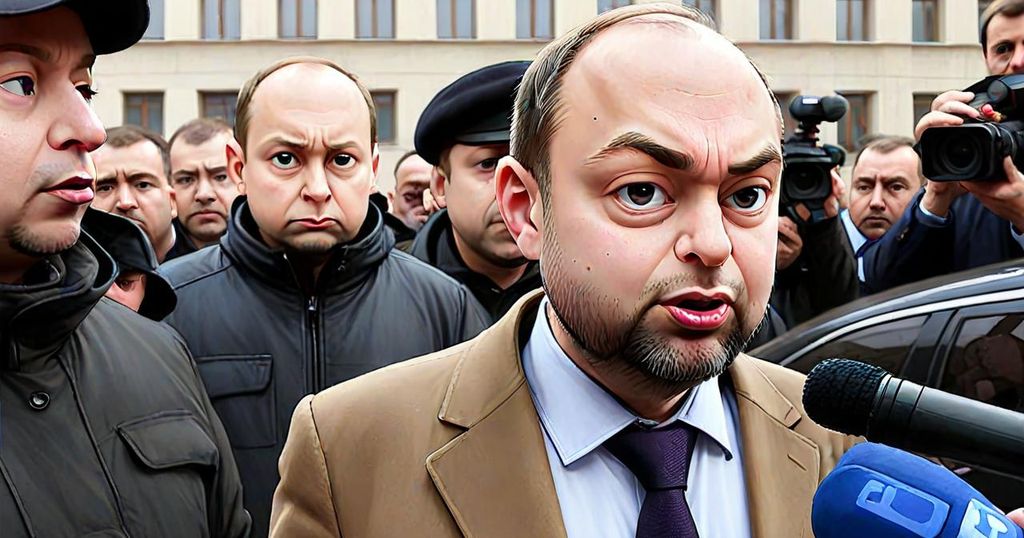A Diplomatic Feat: The Release of Russian Opposition Figure Vladimir Kara-Murza
The recent release of Russian opposition figure, Vladimir Kara-Murza, as part of a Russia-U.S. prisoner swap, has evoked a sense of relief and celebration. President Biden has praised the successful negotiation as a diplomatic accomplishment that brought an end to the harsh ordeal of 16 individuals held in Russia. This significant prisoner exchange is considered one of the largest between Russia and the West since the end of the Cold War.
Among the 16 prisoners released were former Marine Paul Whelan, Wall Street Journal reporter Evan Gershkovich, and Vladimir Kara-Murza, a journalist and opposition figure who was a U.S. resident. Kara-Murza’s close friend, Alina Polyakova, president and CEO of the Center for European Policy Analysis, expressed her elation at the news of his release. She noted that the moment was particularly special for Kara-Murza’s wife and children, who are based in the United States. The sight of them standing alongside President Biden during the official announcement of the release was described as a beautiful and joyous moment.
Polyakova also highlighted the advocacy efforts that had been ongoing for Kara-Murza’s release since his arrest, noting that it was surprising and heartening to see not only him but also several other Russian nationals included in the exchange. As a survivor of two poisoning attempts and a coma, Kara-Murza’s health had been a source of concern during his detention in Russian prison. Polyakova expressed hope that he would receive the necessary medical attention in Germany before reuniting with his family in the U.S.
The negotiations for the prisoner exchange had been ongoing for an extended period, and Polyakova pointed out key reasons for its successful completion. She emphasized the personal interest of Russian President Vladimir Putin in securing the release of a high-profile Russian FSB assassin, as well as the leadership of Chancellor Scholz of Germany in facilitating the deal.
While the prisoner exchange marks a significant development, Polyakova cautioned against overinterpreting its implications for broader diplomatic relations. She underscored that the Kremlin views the exchange as a wartime prisoner-of-war swap and emphasized that it does not signal any substantive shift in Russia’s aggression against Ukraine or an improvement in relations between Russia and the West.
In conclusion, the recent release of Vladimir Kara-Murza, along with other prisoners, in the Russia-U.S. prisoner swap has been hailed as a diplomatic achievement. While offering hope for the individuals involved, it is crucial to recognize the broader geopolitical context and be mindful of the complex dynamics at play in international relations.
Source: NPR








Post Comment